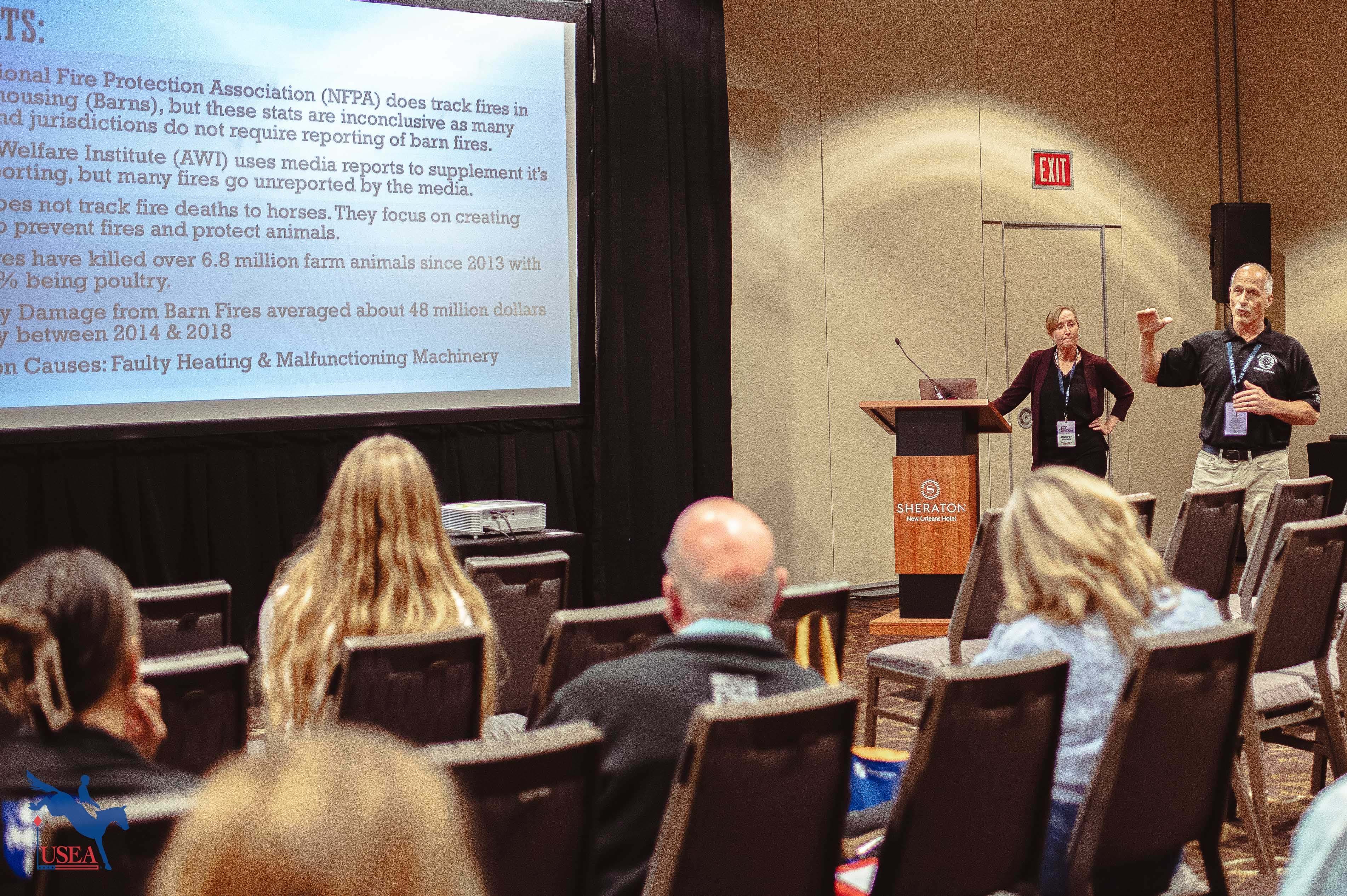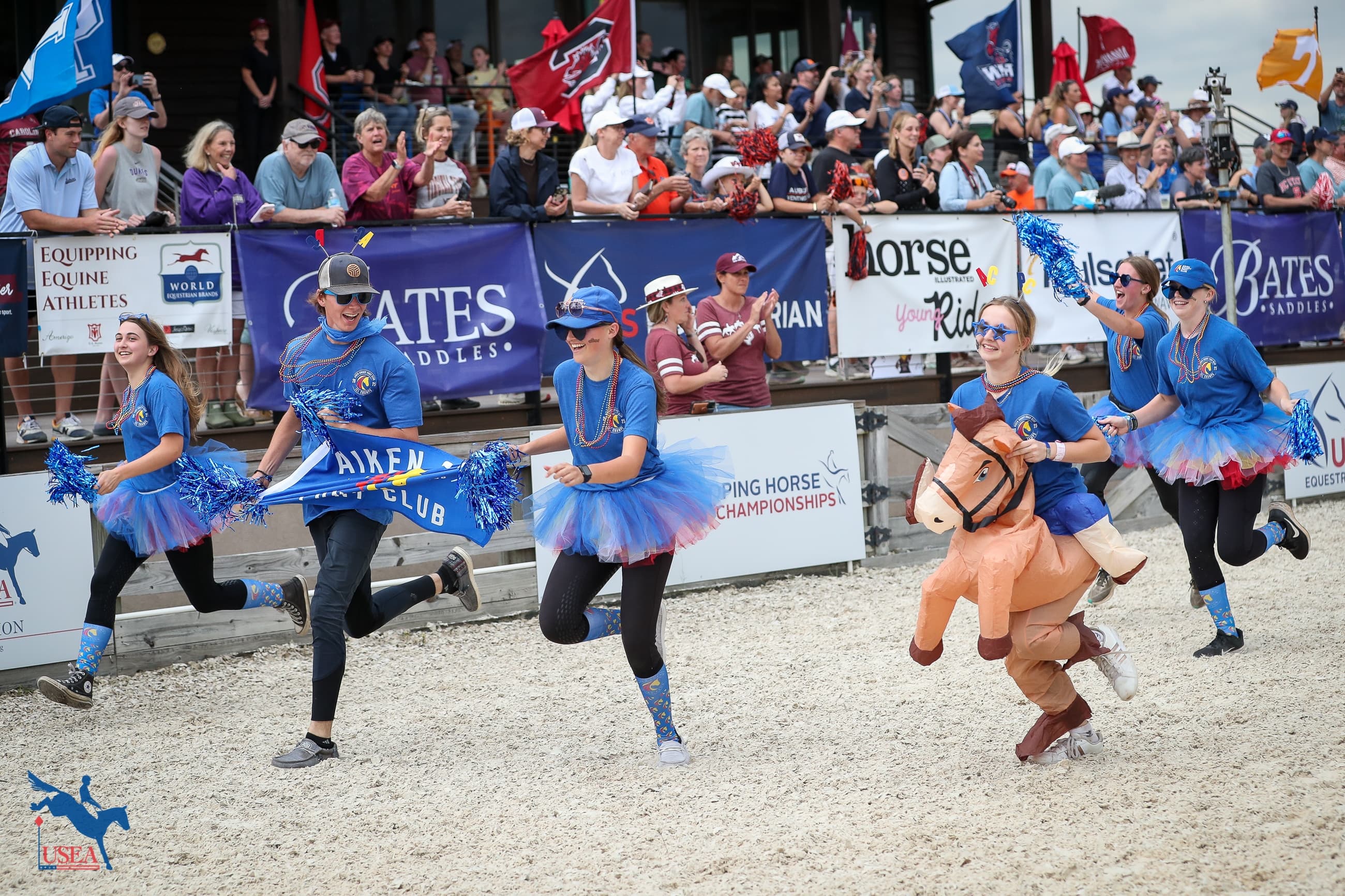Facing Down Uncertainty
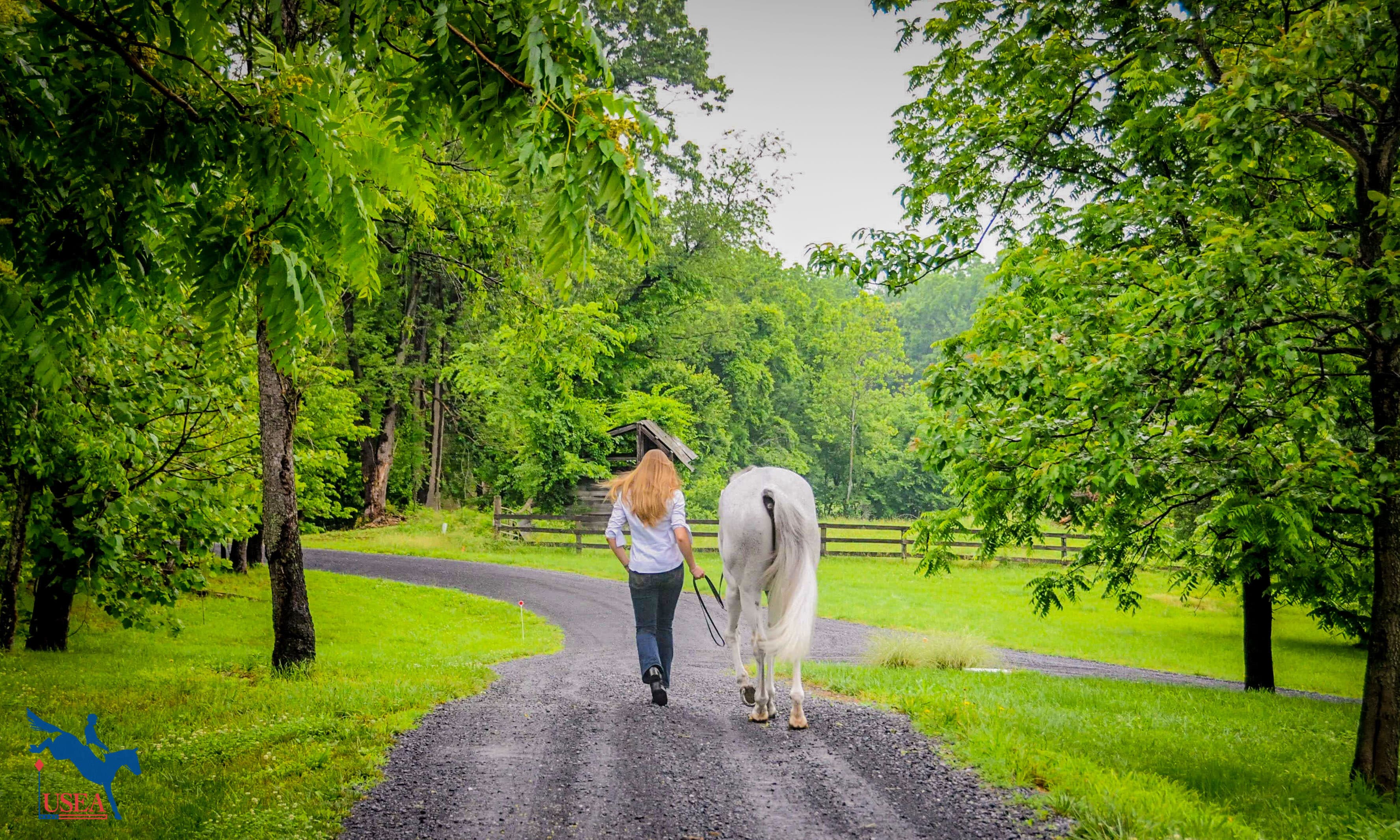
In this time of uncertainty, it can be difficult to know what steps to take next. Now that the spring season has been cut short, how do we adjust our goals for the fall season? And in the meantime, how do we manage the anxiety of not knowing what tomorrow will bring?
Many of us take great comfort from the routine and schedules of keeping and training horses, and just when we most need this normalcy, the competition schedule has been disrupted. There is the anxiety brought on by one story after another about COVID-19, and we can’t even retreat into trot sets because we have no idea when we will get to compete.
“There is so much uncertainty right now and we are not wired to accept uncertainty,” said five-star eventer and sports psychology consultant Abigail Lufkin. “We are wired for heightened anxiety. You needed to be anxious about the possibility of a tiger in the woods, because if you weren’t, you would be eaten. I think it’s really helpful for us to begin by knowing that our nervous systems are wired to maximize anxiety. With that knowledge, we can be more skillful in how we help ourselves ground and find our feet during this time of widespread fear.”
Lufkin continued, “One of the ways that our brains handle uncertainty is to imagine the worst-case scenario. How many times when you are worried about a cross-country course or feeling afraid about a particular combination, do you spontaneously imagine having a flawless round? For most of us, this is a skill we must actively develop. The same is true in our current situation. When worried, our brains go to the most terrible ‘what ifs?’ A useful strategy can be to insist that we also entertain the possible good outcomes; my family and friends stay healthy, my riding improves, my horses benefit from having a competition break, the planet has an opportunity to recover from overuse, etc.”
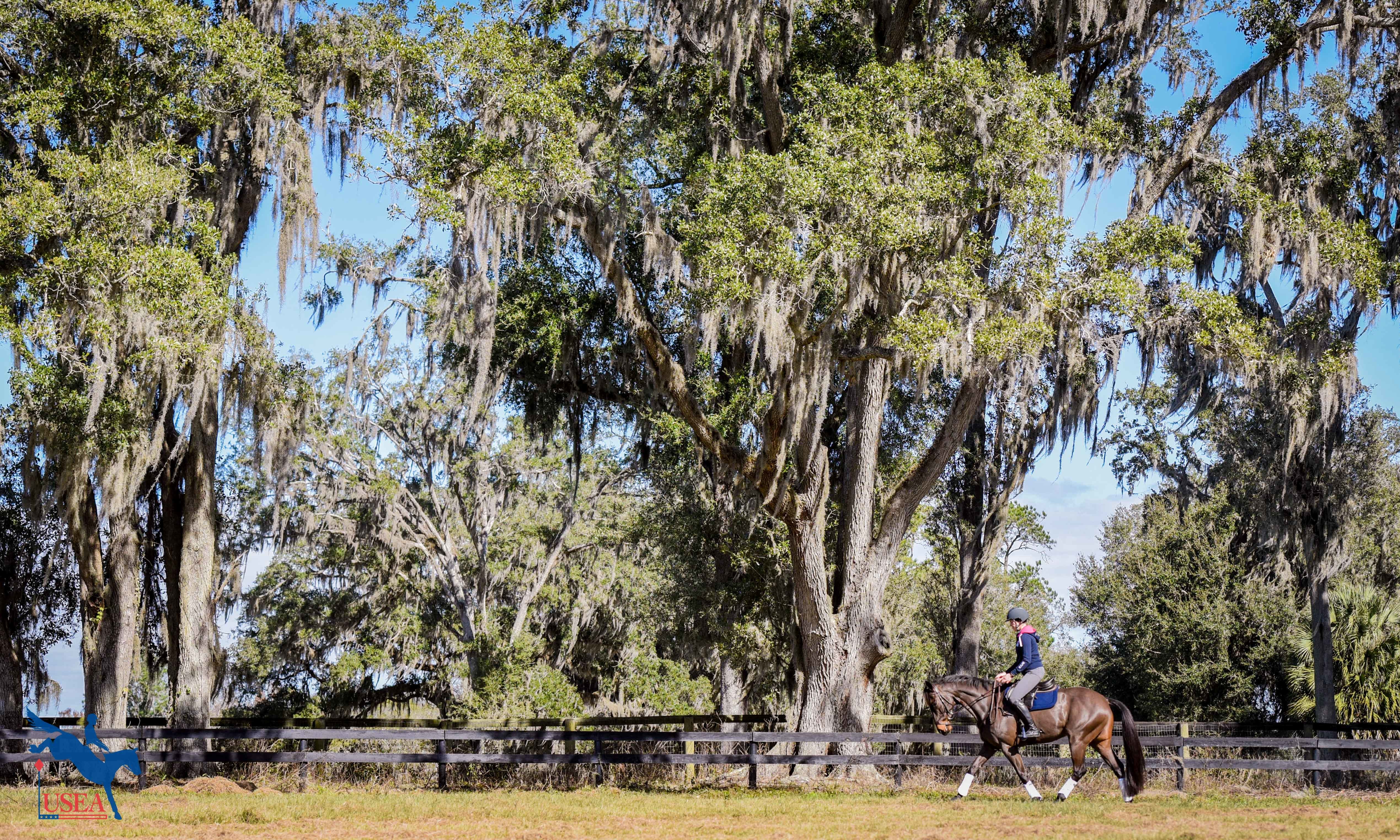
Lufkin had further suggestions along these lines. “In addition, it’s helpful to notice that the thoughts that spike our anxiety are almost always future based. ‘I’m afraid that x is going to happen.’ We will do better when we anchor ourselves in the present and remind ourselves, ‘In this moment, I am healthy, I am outside, I am enjoying my horse. In this moment, all is well.’ I remind myself continually that worrying about what might happen isn’t going to make it any less painful if it does happen. It’s not going to help that day in the future, but it IS going to ruin my day today.”
Lufkin explained that managing anxiety is an active practice that takes concentration and persistence. “It’s really similar to how you manage a young horse,” she said. “For example, a young horse will spook over there, and you’ll use your containment to bring him back to the straight line, and then he’s back off to the left, and then you bring him back again. With our minds and anxiety, it’s really similar. Your mind goes this way and that and you have to bring it back to center; you have to actively manage it. A great way to train for this is through teaching ourselves mindfulness, which quite simply means purposely paying attention to the present moment without judgement. I recommend using an app like 'Headspace' or 'Calm' and committing to five to 10 minutes a day with it. This has the double benefit of first, seeing us through this challenging time and second, becoming a base that we can use to improve our mental game when competitions resume. Helping your brain return to the present moment, particularly in times of stress, brings the focus and concentration that top performers use to be successful.”
As eventers, Lufkin said we’re uniquely equipped to manage our anxiety. “There are so many things that event riders are good at that we can actually bring to this situation,” she said. “For example – we’re really good at scheduling. We do gallop schedules, feed schedules, vet schedules, competition schedules. We have an intentional schedule for everything we do with our horses so let’s use that skill for this situation. We have been thrown into a place where we need to quickly adapt and create new habits for ourselves. We’re going to do better if we schedule our days. Routines are calming for our brain, so use your skills to create a new routine for yourself.”
Lufkin went on to say that, “It’s important that this routine include activities that bring us joy and connection and relief from our very busy minds. I’ve been prescribing comedies for clients at the moment, because laughter sends a direct message to our brain that all is well. Another useful way to manage our anxiety is through exercise. There is very good research that 30 minutes of exercise with our heart rate above 90 beats per minute works powerfully to increase feelings of calm and well-being. This has the added benefit of keeping us fit and strong and ready for when we are out competing again.”
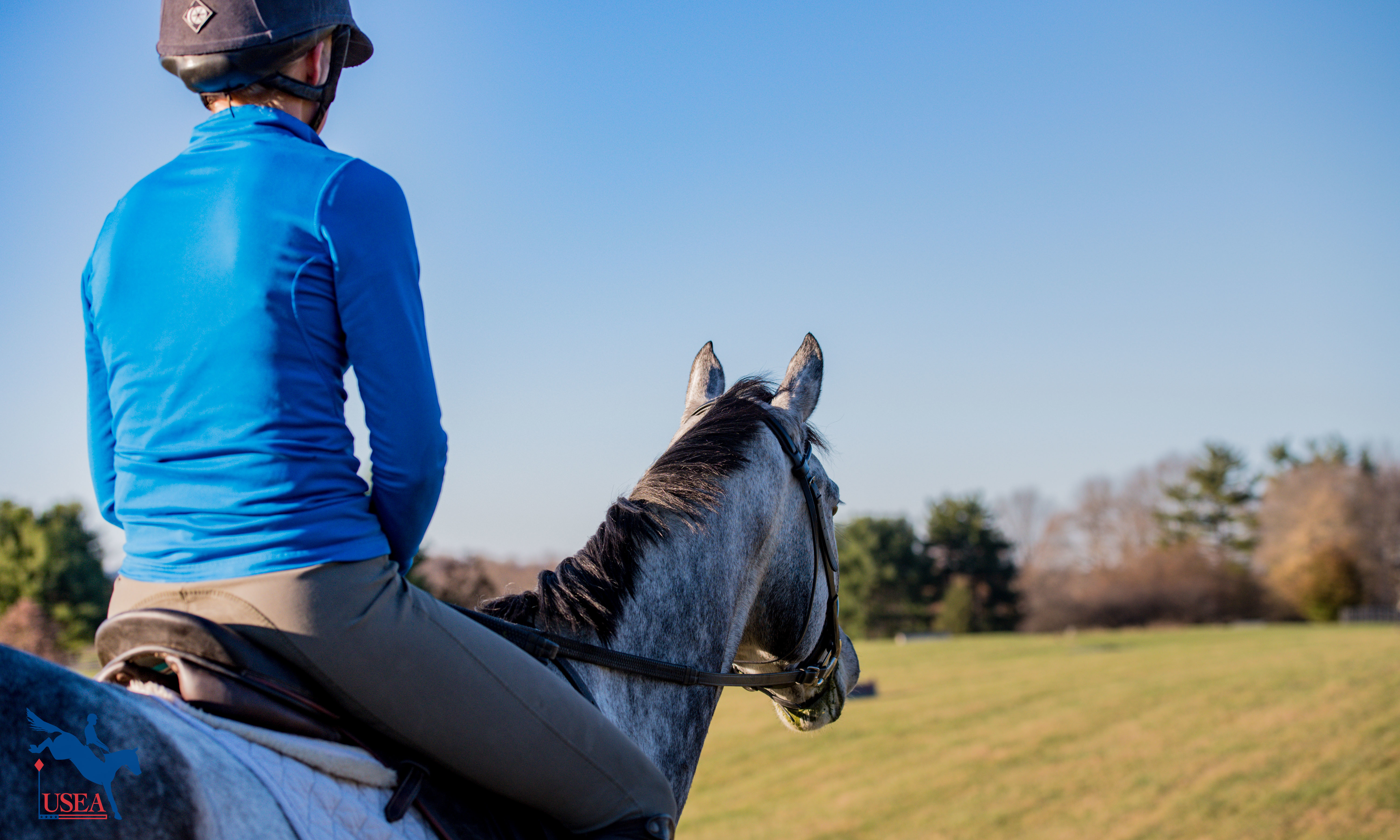
Lufkin also suggested setting specific times throughout the day to sit with your worries or concerns. “Give yourself a time of day, or two times a day, to worry,” she explained. “Maybe you write in a journal – write down all the things you’re scared of. Don’t edit, just write everything that comes in your head. Trust me, no thought is too crazy- let them all out. Then, throughout the day, when worry thoughts come up, notice them, but say to yourself, ‘I’ll save that for my 6:00 p.m. worry. Right now, I’m focusing on this book I’m reading, or this homeschooling session I’m doing with my child, or this flatwork exercise I’m working on with my horse.’ The more we can stay in this exact moment, the better off we’re going to be on so many levels.”
And what about goal setting amidst all this uncertainty? “We’re used to being able to say, ‘In a year I’m going to do a four-star,’” Lufkin observed. “We don’t have that luxury at the moment because we don’t know what’s going to happen. I think instead it’s helpful to think about, ‘What’s my goal for the day? What’s my goal for the week?’”
Lufkin said there’s an opportunity here for riders to take a step back and really focus on their training. “We rarely have the opportunity to take time away from competition and really work on that left bend issue,” she said. “We’re often fudging something to get to the next event. But now, we have this opportunity to think about it differently and work methodically and comprehensively, maybe get to the bottom of an ongoing challenge. How often do we have the chance to ride without stirrups? We train our strengths, but now we have a chance to improve our weaknesses.”
Lufkin continued, “One way to approach this is to ask, ‘When this is over, what am I going to wish I had done?’ It will be different for each person, but I think it’s useful to ask the question and then use your response as a guide. Similarly, I can help myself to focus on the positive things that are coming from this; neighbors helping their neighbors, the swans and dolphins returning to the canals in Venice because for the first time in years, there is no pollution or traffic to keep them away, as well as whatever positive things we notice in our own lives from having a slower schedule.”
“Everybody knows this, but I still find it helpful to be reminded – this is not going to last forever. It’s really hard, but that’s the thing about event riders. We’re tough, we deal with a lot of adversity, and we certainly know about disappointment. And we have skills and strategies we’ve developed to get through those times. In many ways we event riders are wonderfully suited to take on this challenge in a creative and productive way. I really believe that.”
About Abigail Lufkin
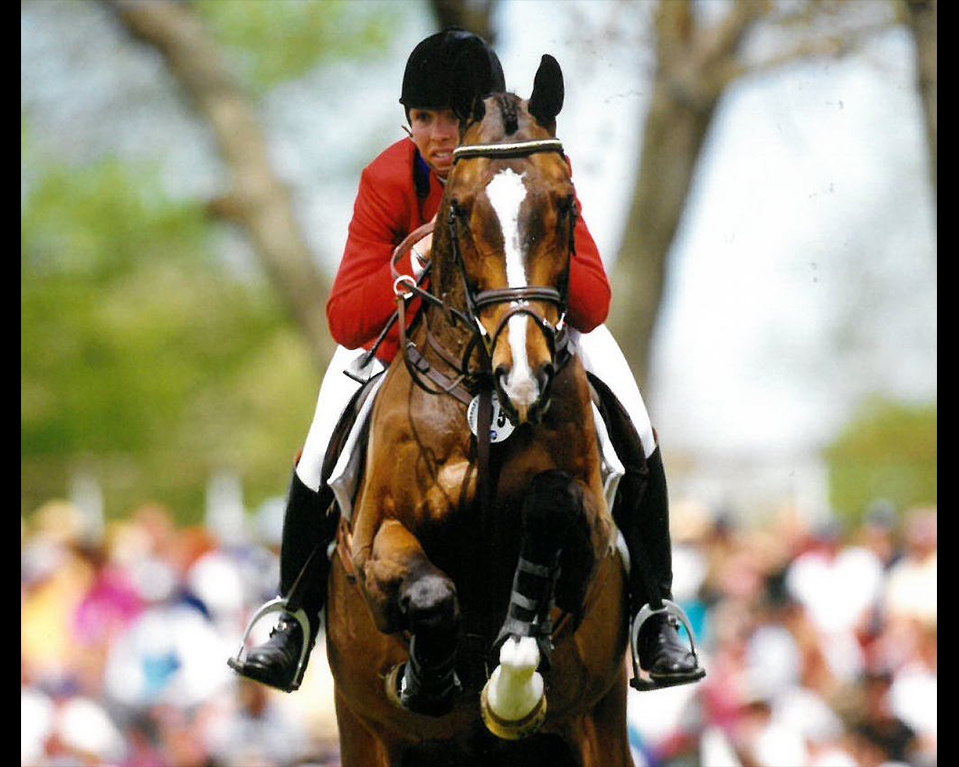
Abigail Lufkin began riding at age three and began eventing when she was 11. Lufkin had substantial success as a young rider, winning multiple gold and silver medals at the North American Junior/Young Rider Championships. She competed extensively in the United States and Europe with top-10 finishes at events such as the Kentucky Three-Day Event, Fair Hill International, Blenheim, Luhmülen, and Saumur. Lufkin won medals at the Pan American games, competed at the World Championships, and was selected for the 2000 Olympic team in Sydney before having to withdraw due to her horse sustaining an injury. Sports psychology was an essential part of Lufkin’s success and upon retiring from eventing she received her master’s degree in clinical psychotherapy and continued to study sports psychology. She now has her own performance coaching practice where she assists individuals across the United States, many of them equestrians, to achieve their personal and competitive goals.

